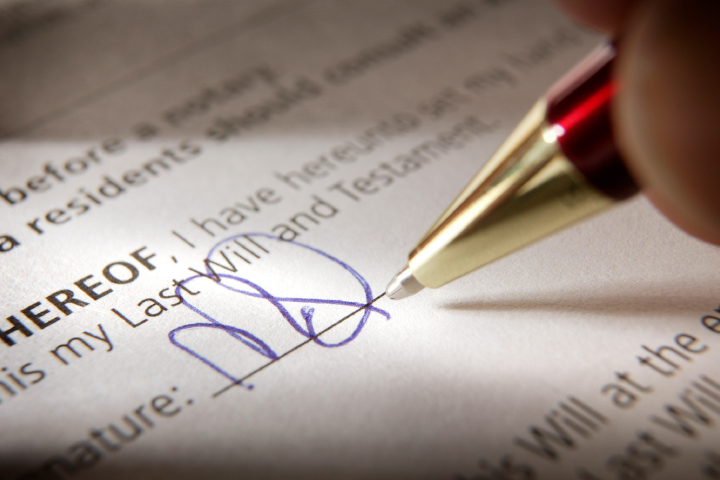Unexpected patient bequests: where do you stand?
Avant media
Monday, 6 February 2023

It is often a fraught issue for doctors when a former patient bequeaths a gift to you in their will – particularly when it’s out of the blue and a significant asset.
In one scenario* a longstanding patient bequeathed a large sum of money to a GP in their will. The doctor was shocked as the patient had never discussed their intention to leave a bequest. While she had a good relationship with their remaining family, she was concerned about her legal obligations and potential ethical issues.
Professional obligations
As the essence of the doctor-patient relationship is founded on trust, it can be difficult for a doctor to accept a bequest without the question of undue influence arising. In situations where a doctor is seen to be personally benefiting from providing care to a patient, it can affect the public perception of the doctor and the profession.
The independence of doctors when treating patients is a key aspect of the Medical Board’s code of conduct. The code states that doctors must be honest and transparent in financial arrangements with patients and not encourage patients to give, lend or bequeath money or gifts that may benefit the doctor directly or indirectly. However, the code does not make any comment on whether bequests should be accepted.
There are no definitive rules or laws that govern whether a doctor should or shouldn’t accept a patient’s gift. In the absence of a practice or hospital policy on accepting gifts, whether you accept a gift comes down to your own judgement.
Deciding whether to accept a bequest
Generally, there is no fixed value that determines whether a gift is appropriate or not. In considering whether a finding of unsatisfactory professional conduct was appropriate, in one case where a doctor had accepted a monetary gift, the Professional Standards Committee took into account:
- the varied interpretations and implications of the gift-giving, such as the monetary value, nature and frequency of the gifts, and
- whether the GP attempted to discourage or return the gifts.
In situations where it is difficult to refuse the bequest, for example, because there is no other family, or it would offend the deceased’s family, taking away the suggestion of personal benefit can be helpful. One option is to suggest the gift be donated to charity in the name of the deceased or be given to specific medical services or organisations.
Doctor returns money to estate
In this scenario, another option is for the doctor to contact the executor of the will or the patient’s family to express their gratitude for the gift. This provides the opportunity to gauge the attitude of the family towards the gesture and whether they would be compromised financially or emotionally by the patient’s decision. Based on the response, the doctor may decide to return the money to the deceased’s estate.
Questions to keep in mind
Patient bequests can be tricky even for the most seasoned doctors. When deciding whether to accept a bequest, bear in mind the following:
- Did you encourage the bequest?Doctors should not encourage patients to give, lend or bequeath money or gifts that may benefit them directly or indirectly.
- Does your workplace have a policy on accepting gifts?If so, check and adhere to the policy.
- What is the value of the bequest?If it is significant, you might feel more comfortable returning it to the deceased’s estate or suggesting it be donated to a charity.
- How would you feel if your acceptance of the bequest was public?If this would make you uncomfortable, you should decline the gift.
For advice on your obligations around bequests, call our Medico-legal Advisory Service on 1800 128 268, 24/7 in emergencies.
If you are considering making a bequest to someone who also provides you with professional services, Avant Law’s estate planning team is happy to discuss with you whether the gift is appropriate. For a no-obligation consultation call 1800 867 113 or complete our form.
Useful resources
Disclaimers
*This scenario is fictitious and any resemblance to real persons, living or dead, is purely coincidental.
IMPORTANT: This publication is not comprehensive and does not constitute legal or medical advice. You should seek legal or other professional advice before relying on any content, and practise proper clinical decision making with regard to the individual circumstances. Persons implementing any recommendations contained in this publication must exercise their own independent skill or judgement or seek appropriate professional advice relevant to their own particular practice. Compliance with any recommendations will not in any way guarantee discharge of the duty of care owed to patients and others coming into contact with the health professional or practice. Avant is not responsible to you or anyone else for any loss suffered in connection with the use of this information. Information is only current at the date initially published.